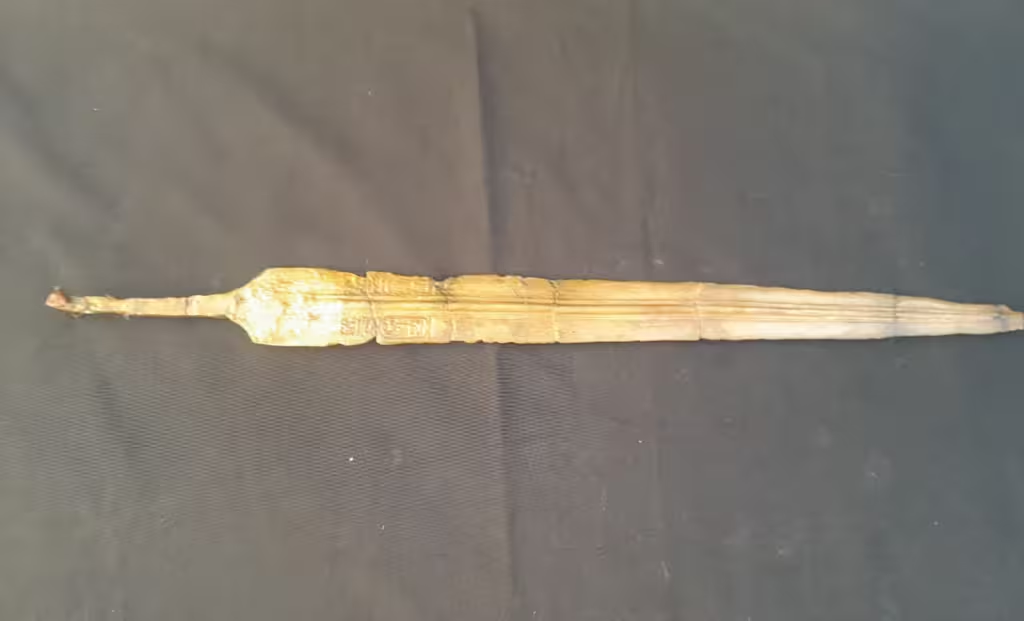
Happy New Year, folks.
I often hear people talk about teachers who opened their minds and transformed their lives during their schooldays. This is usually in the context of extolling education in general by offering a heroic figure for everyone to admire.
Well, I had a lot of great teachers, and still do, although school is far behind me. But I’ve never been able to point to one that had that sort of “I was blind but now I see” impact on me. I do have some more modest stories about teachers who turned me on to something.
Like Mr. Kramberg, down in New Orleans when I was in the 7th grade.
I’m sorry I don’t have his full name — and maybe I’m even misspelling his surname, after all this time. I’ve tried researching him on the Web, without success. And that worries me. You see, toward the end of that year, we were told that Mr. Kramberg wouldn’t be returning to Karr Junior High School after that 1965-66 school year, because he was going into the Army, and as I remember it, he was going to Vietnam (as my Dad did the following year). I assume (possibly wrongly) that since he was a teacher he would receive a commission, and while I may not have known then about the survival chances of second lieutenants in the infantry, I know more now.
Anyway, I remember him fondly, and not just because of the novelty of him being my first teacher who was a Mister and not a “Miz.” He had that quality that you find in “Conrack” (I never read The Water is Wide, but only saw the movie) and other books and films about teachers who made an above-the-call-of-duty effort to connect with students. And here’s the example of that I remember best…
For part of that term, he spent a few minutes each day reading a short story to us. I was a fairly voracious reader as a kid, but this story was different from any written work I had ever encountered. I had a habit in those days of letting my attention wander far from what was going on in English classes. I couldn’t help it. Classes in which the teacher went over and over rules of language that were second nature to me as an avid reader practically put me in a coma. But I was riveted by every word that he read aloud from “Flowers for Algernon” by Daniel Keyes.
Yes, I said “short story.” That’s all it was, initially, when it was written in 1958. I later found out about the novel version published in 1966 and read and enjoyed that, once I realized it was the story Mr. Kramberg had read us.
Aside from the story being compelling, the unique (to me at that point in my education) way in which Keyes told it was what grabbed me. It’s told in first person by a retarded man named Charlie Gordon who wants more than anything to be “smart.” He studies hard, and his motivation causes him to be singled out for experimental surgery to greatly increase his intelligence (yes, the story was published in The Magazine of Fantasy & Science Fiction in 1959, and won both the Hugo and Nebula awards).
Aside from that premise, the story was decidedly down-to-earth, particularly because of Charlie’s very humble writing style. The doctors involved in the experiment have asked him to keep a journal, and he does his best, even though his grasp of spelling and composition are at best marginal. The story — in both short and novel form — is told entirely through that journal.
It’s a very compelling way to tell Charlie’s story, and that’s what grabbed me from the beginning Mr. Kramberg’s class. He did a great job of conveying Charlie’s challenges as a writer, and it really pulled us along. Or at least it did me. Since then, I have read and enjoyed the novel quite a few times.
If you haven’t read it, I highly recommend it.
After this, though, if you have not read it, I must give you a SPOILER ALERT. You probably shouldn’t read beyond this sentence…. Even though I suspect you would still enjoy it even if you knew how it ends. The appeal of the work is more in how the story is told than in the outcome itself.
But if you hate spoilers, read no further.
Those who have read it know the sad fact that this is, as Keyes described it, “a classic tragedy.” After the initial chapters, Charlie undergoes his “operashun,” which he assures us “dint hert.” It is a dramatic success, and the following journal entries showcase a process — gradual at first, then rapidly accelerating if I recall correctly — of a simple man becoming a genius, and discovering things about the world and himself that he had never suspected.
Those chapters are exhilarating. Unfortunately, the effect is not permanent. And once he becomes far smarter than everyone around him and has thoroughly studied and absorbed the data that underly the procedure he has undergone, Charlie is the first person to realize that he will soon return to being the way he was. The doctors who are so proud to have transformed him reject the suggestion that their project will fail, but Charlie knows. And then the journal entries start sliding down from brilliance to the stumbling level where they started.
Which is painful to endure, but it’s still a great story. In fact, if I can’t find that old paperback around the house, I might go buy myself another copy.
But if I read it again, I’m a bit worried that I might identify with those latter chapters a bit more than would be pleasant.
Everyone declines if one lives long enough. Sometimes in ways that don’t matter very much. For instance, I was a bit alarmed 20 years ago when I suddenly realized I no longer had perfect recall of every lyric the Beatles ever wrote or recorded.
Somehow, though, life went on, and in fact I still remember most of them. So what, me worry?
I got somewhat more alarmed this week. Remember how I theorized awhile back that studying Dutch had sharpened my language skills, even in English? As I wrote in early November:
Also… back when I was doing 10 and more [Duolingo] lessons a day, before the Europe trip, an interesting thing happened. I suddenly was really, really good at the NYT word games I play — Wordle, Spelling Bee and Connections. I mean crazy good. There was one week when I got Wordle in two tries three days in a row, and also hit the “genius” level — which means I “won” — three days in a row [on Spelling Bee].
It was a bit like experiencing in real life what Charlie went through in the period after his “operashun.” I was still digging that, even though I had stopped doing the 10 Duolingo lessons a day, and was only completing one or two, to avoid breaking my streak (which now stands at 297 days).
Well… today I decided to step up the pace to three or four lessons, and may do more before the day is out.
That’s because suddenly, I’ve hit a wall on Wordle. I did not complete the puzzle on Tuesday. But that’s OK, right? It was just because I forgot to go back and complete it. That happens occasionally — it happened one day when we were in Europe over the summer. And on Wednesday, I got through it just fine.
But then on Thursday, I failed entirely. Six tries, and no cigar. It had been awhile since that had happened.
Then today, it happened again.
Two failures in a row? I don’t think that has ever happened to me before. Sure, these were both of the kind of puzzle I hate — the kind in which it’s not at all hard to come up with a five-letter word using the letters that are still available. The problem is that it’s too easy — there are far too many possibilities, so it’s more about guesswork. Luck comes into play.
But enough excuses. I’m looking toward Saturday with some degree of dread. And I’m thinking I not only need to do more Duolingo lessons each day, but maybe it would be more mentally stimulating to start tackling a whole new language. Italian might be fun. And Russian would be challenging…
Anyway, I just thought I’d give y’all a warning in case, as I start posting on the blog more with the holidays behind us, my posts start to read like the later chapters in Flowers for Algernon.
I don’t think that will happen, but you never know. Meanwhile, I thought it would be nice, for any of you who have not read it, to turn you on to that book, so many years after Mr. Kramberg did me that same favor.
And more importantly, if anyone who reads this knows Mr. Kramberg and where he can be found, I’d like to send him a nice “thank-you” note…

































